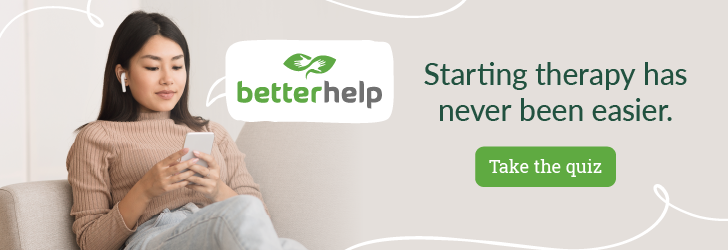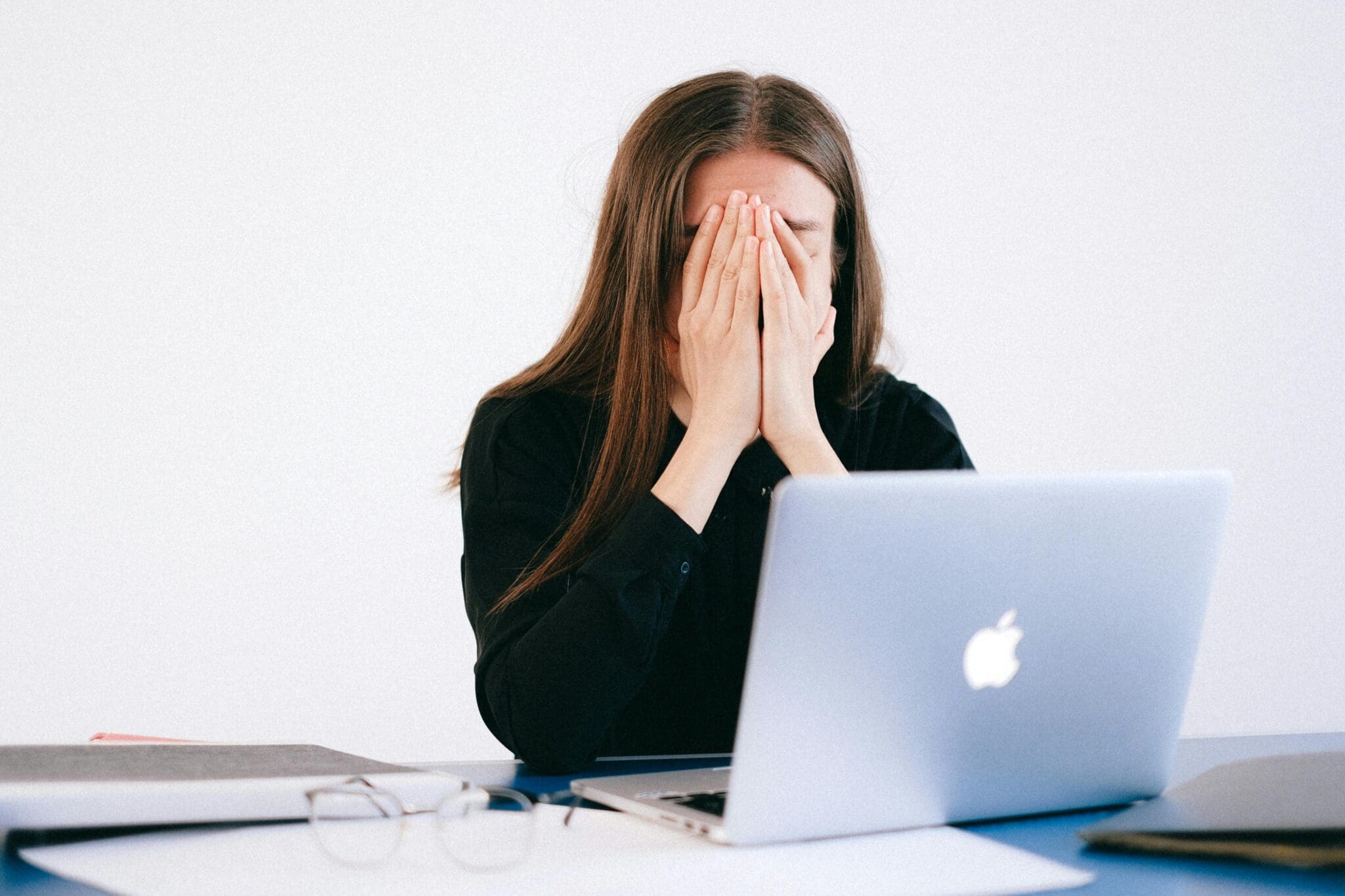Full Disclosure: Clicking on these links could mean a tiny commission for me, at no extra cost to you.
Anxiety prevents millions of people from leading happy and productive lives each day. In the US, over 40 million adults experience anxiety disorder. This makes it a fairly common mental health condition. Unfortunately, many among us don’t have the awareness or knowledge to identify and tackle it effectively. In this article, we take a look at prevalent triggers of anxiety and how best you can cope with them.
What Is Anxiety?
The American Psychological Association describes anxiety as “an emotion characterized by feelings of tension, worried thoughts, and physical changes like increased blood pressure”. It is a long-lasting response to a threat that could arise in the future. This makes it different from fear, which is often short-term and associated with a specific existing event.
There are also many different types of anxiety disorders, with symptoms including both emotional and physical responses, such as:
- Agitation
- Irritability
- Unease
- Continuous worrying
- Restlessness
- Panic attacks
- Lack of focus
- Increased heartbeat
- Muscle tension
- Breathlessness
- Sweating
- Digestion issues
- Fatigue
- Poor sleep
- Nausea
- Headaches
Anxiety could take a negative toll on your relationships, work, and personal life if left unaddressed. It could also affect your mental health and physical wellbeing. This is why identifying your specific anxiety triggers is essential for your recovery. After all, when you know what is behind your anxiety attack, you can take steps toward mitigating it effectively.

Anxiety Triggers and How You Can Cope With Them
Below is a list of factors that are common anxiety triggers, along with tips and strategies on how you could best tackle them to minimize worry and distress.
1. Lack of Sleep
We all know that anxiety can affect your sleep quality. However, this can work in reverse, too: Studies now show that constant sleep deprivation could exacerbate anxiety-related symptoms.
So, when you regularly experience disturbed sleep patterns, understanding and addressing its causes is important.
Prioritize sleep over binge-watching TV, playing video games, or anything else keeping you from a good night’s rest.
Ensure your nighttime routine and sleep environment are conducive to a high-quality slumber. Avoid heavy meals, snacks, and alcohol, and minimize screen time in the evenings. Don’t forget to set the thermostat to a comfortable temperature and prevent sound-related disturbances.
2. Dietary Habits
What you eat could influence the biological functions of your body and lead to increased symptoms of anxiety.
For example, consuming alcohol and caffeine in excess is known to affect sleep and hormones that help regulate mood. Too much caffeine, in particular, could lower serotonin, the feel-good hormone, making you cranky and anxious.
Carbs, processed foods, and those with added sugar, including sodas, can also have similar effects.
If you notice mood changes based on what you eat, eliminate the relevant food types from your diet and include more greens, nuts, fruits, and legumes.
Try Now: Custom Keto Diet
3. Peer Pressure
Social pressure can intensify when you’re constantly exposed to consumerist lifestyles and trends in a digitally connected world.
It’s natural for FOMO and an urge to keep up with the Joneses to weigh in on your mind, which could, over time, lead to fear, worry, and anxiety about your own life, material possessions, and achievements.
To avoid the constant pressure to keep up appearances on social media, minimize your digital interactions and take a social media detox. Choose to spend more time with your loved ones or engage in activities that make you happy. For example. instead of scrolling social media, read that self-help book you’ve had on your to-do list.
4. Work-Related Concerns
Unmanageable workloads that force you to work late regularly, toxic environments that harbor office politics, and frequent conflicts with coworkers can all become anxiety triggers within the workplace. The best way to cope with such situations is to speak with your boss and ask for support when you feel overworked. Take regular time off to ensure work doesn’t consume your entire life and to maintain a healthy work/life balance.
If you struggle with feeling like you aren’t productive enough, practice some time management techniques and eliminate any distractions. For example, if you constantly check social media or answer calls during work hours, keep the phone in silent mode and away from your desk. You can always look up unfamiliar numbers on Nuwber and return missed calls during breaks.
5. Social Interactions
For some, social interactions are a major cause of anxiety. This is known as social anxiety. If showing up at large gatherings, meeting new people, or speaking in public are your main anxiety triggers, it’s important to find ways to ease your worries.
You can ask someone you trust to accompany you when attending social events or find a professional coach to help you with public speaking. There are many other strategies for social anxiety that will help you overcome these fears.
6. Negative Thinking
Negative thought patterns are usually triggered by sights, sounds, and places associated with unpleasant experiences that cause you worry and unease. Developing self-awareness is crucial for identifying and removing them. Mindfulness meditation and journaling can often help you achieve this.
Exercising regularly, surrounding yourself with optimistic people, and finding positive activities that could help shift your focus from negative ones are effective, too. There are also many effective strategies for overcoming intrusive thoughts and negative thinking as it comes. Our overthinking workbook helps you identify the negative thought patterns you’re experiencing and overcoming them, one worksheet at a time.
Download Now: Anxiety Gone’s Overcoming Overthinking Workbook
7. Financial Worries
Restlessness, stress, and worry could easily creep in if you feel your income is never enough or when you constantly struggle to reach your financial aspirations. Understanding the finance-related anxiety triggers that keep you up at night and finding solutions to minimize them is the only way to tackle such anxiety triggers.
For instance, if student debt makes you anxious, you can work out a plan to systematically pay it off. This might mean cutting down on extra indulgences, such as a daily coffee from your local cafe – caffeine isn’t great for anxiety anyway. You can also prepare a budget to help you keep a tab on your expenses and find ways to make extra cash.
There are also countless options today to generate additional income—from renting a spare room to teaching a skill and creating digital products. Explore your talents and see how they can make you some extra profit.
Key Takeaways
Anxiety is much more prevalent among American adults than you may think. Its triggers can vary between people and can include lack of sleep, dietary habits, peer pressure, work, social interactions, negative thinking, and financial worries.
Identifying what makes you regularly anxious (your specific anxiety triggers) and taking measures to mitigate it is essential for a happy and healthy life. Whether you’re looking for the best anxiety therapist Dubai or mental health resources in Canada, United States or anywhere else in the world, there are options available.
Full Disclosure: Clicking on these links could mean a tiny commission for me, at no extra cost to you.









